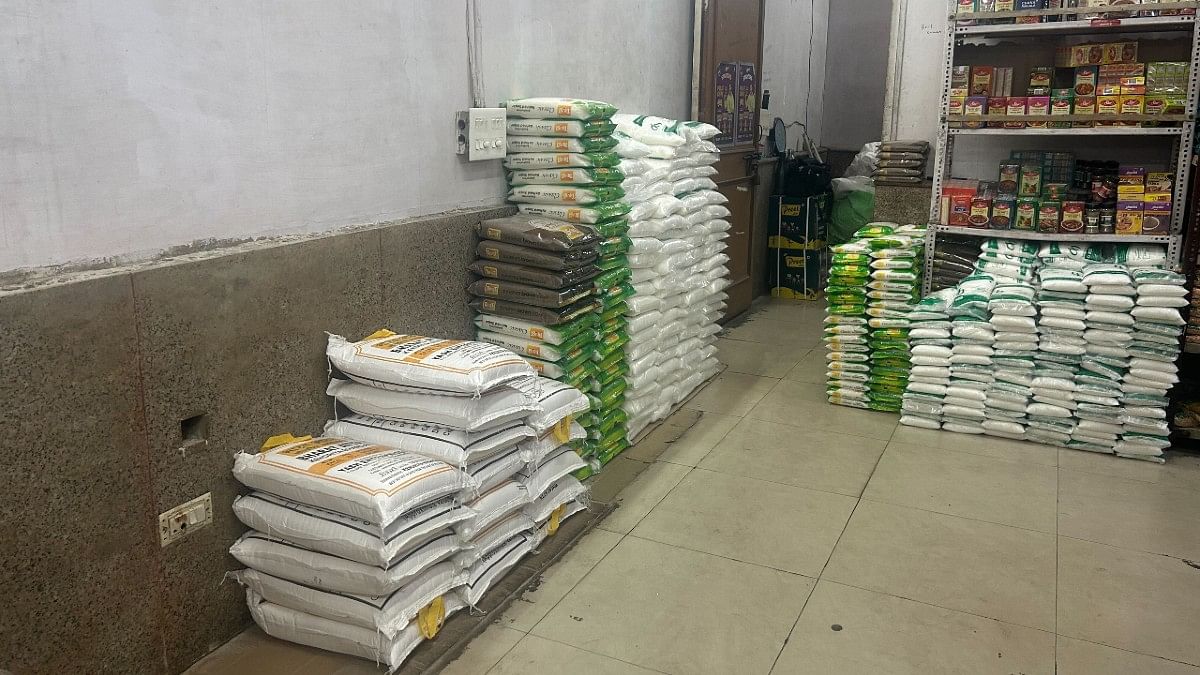New Delhi: Available at retail outlets and mobile vans of National Agricultural Cooperative Marketing Federation of India (NAFED), National Cooperative Consumers’ Federation of India Ltd (NCCF) and Kendriya Bhandars, across Delhi, Bharat Atta is growing in popularity among consumers, prompting calls for other products such as “Bharat Chai” and “Bharat Tel”.
Ahead of this year’s Diwali, the central government in a bid to further bring down inflation launched the Bharat Atta scheme, making wheat flour easily available for all at a subsidised rate of ₹27.50 per kg, much lower than the prevailing market rate of about ₹36-70 per kg, depending on brand and location.
As part of this scheme, the government is also providing Bharat Dal (chana dal) at Rs 60 per kg through NAFED, NCCF and Kendriya Bhandars, besides onions at Rs 25 per kg at around 150 locations in Delhi-NCR.
Sukhbir Singh (62), a retired Municipal Corporation of Delhi (MCD) official, reached the Kendriya Bhandar in Kalkaji early Thursday morning to buy three bags of Bharat Atta for a family of twelve. “In the market we usually get atta for around ₹45 per kg. We can’t really afford that. And the good thing about Bharat Atta is that the taste and quality are great,” he told ThePrint.
The government, he added, should expand this scheme to include chai (tea), tel (vegetable oils) and more dals (pulses). “This scheme has really helped us. If they subsidise more things like this, it will make things easier for us.”
ThePrint reached Sanjeev Chopra, secretary, department of food and public distribution, via email for comment to inquire whether the government had any plans to expand the scheme to include more food items but had not received a response by the time of publication. This report will be updated if and when a response is received.
Union Food and Consumer Affairs Minister Piyush Goyal had said last month that about 2.5 lakh metric tonnes of wheat was sold from the buffer stock of Food Corporation of India (FCI) at ₹21.50 per kg to NAFED, NCCF and Kendriya Bhandars for it to be later processed into wheat flour.
“The Government of India has taken several steps for the welfare of both farmers and consumers. We have procured food commodities every time we saw the people of the country struggle due to rising prices and have sold them at subsidised prices to benefit the consumers,” he said.
ThePrint also reached NAFED and NCCF via email and phone to inquire of any plans to expand the scheme to include more food items but had not received a response by the time of publication. This report will be updated if and when a response is received.
Also Read: ‘Symbolic, throwback to Nehruvian socialism’, say economists about Modi govt’s subsidised Bharat Atta
‘Everyone who passes by stops to buy dal & atta’
“The scheme started last month and the sales have been great. The quality and prices are both very good,” Ajay Kumar, a helper at the Kendriya Bhandar in Kalkaji, told The Print.
Kumar said that the outlet orders around 400 10-kg bags of flour each week, all of which are sold out by the weekend. “The price of this atta is 275 rupees for 10 kg. Some people even take two or three bags at once,” he said.
“We have easily sold around 100 bags every day since last month.”
The Bharat Atta is being sold at around 800 mobile vans and 2,000 outlets across the country, including 113 Kendriya Bhandars in Delhi.
“We get customers from everywhere. Everyone who passes by, stops to buy dal and now the atta. They know the quality of this atta is good,” added Ajay Kumar.
Earlier, in February, the government had carried out a pilot sale of 18,000 tonnes of Bharat Atta at ₹29.50 per kg through these cooperatives in a few outlets as part of the Price Stabilisation Fund (PSF) scheme.
At the onset, Consumer Affairs Secretary Rohit Kumar Singh had said that of the total allocation of 2.5 lakh metric tonnes of wheat, about one lakh tonnes each was sold to NAFED and NCCF, while the remaining 50,000 tonnes was sold to Kendriya Bhandars, which are fair price ration stores run by the central government.
“I think they picked up the idea from Punjab’s Atta-Dal scheme. It’s good if it’s helping people. Atta and dal are basic necessities and if you are getting it cheap instead of buying wheat and making atta out of it, it is good,” food policy analyst Devinder Sharma told The Print.
He, however, added that one “should not believe that such schemes will actually help” in bringing down food inflation.
Bharat Atta was preceded by the launch of another subsidised product, Bharat Chana Dal (₹60 per kg for a one-kg pack and ₹55 per kg for a 30-kg pack) in July this year.
Neha Singh, a helper at a Kendriya Bhandar on Bahadurshah Zafar Marg, told The Print that the outlet has been selling at least 100 bags of Bharat Atta daily.
“We have not received a single complaint about the quality till now. There is nothing mixed in the atta and it stays fresh for three months,” she said, adding that it is affordable for many who are not willing to pay the market price for wheat flour.
Mumtaz (55), a resident of Bahardurshah Zafar Marg, said she was unsure when someone told her about 10 kg of atta being sold at ₹27.50 per kg. “Then I decided to give it a try and I have bought several bags since then,” she said, appreciating the quality of the atta.
“We hope the government will subsidise chai and vegetable oils as well,” she added.
(Edited by Amrtansh Arora)
Also Read: Two weather events that affected India’s wheat surpluses, took it off the export market

